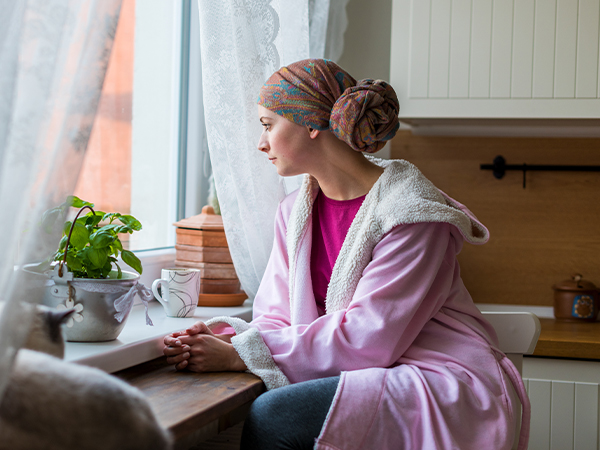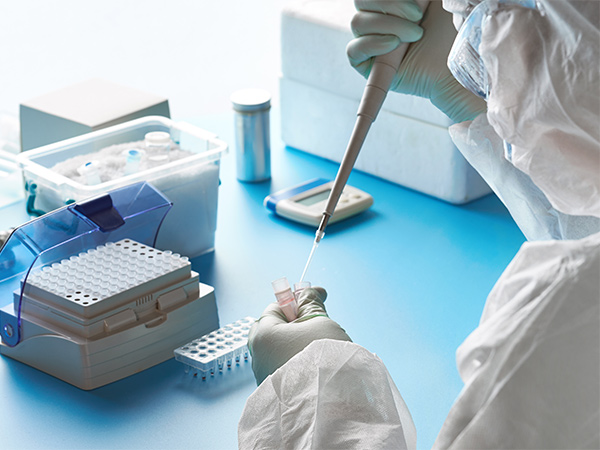Coronavirus Information and Resources

The coronavirus outbreak that has been declared a pandemic by the World Health Organization is affecting people throughout the United States and around the world – and cancer patients, survivors, and their families have been hit particularly hard.
Challenges and disruptions caused by the coronavirus at doctors’ offices, hospitals, and other care locations can make ongoing cancer treatments, participation in clinical trials, and even routine follow-ups difficult. It is critical, therefore, that cancer patients undergoing treatment or follow-up care contact and coordinate with their health care providers. Cancer clinical trial participants should call their research teams for guidance.
During the recent AACR Virtual Annual Meeting I, an international panel of experts provided unique perspectives on outcomes for patients with cancer who contracted COVID-19. Read about this session on the AACR Cancer Research Catalyst blog, here.
The National Cancer Institute (NCI) states that because there is no vaccine against the virus, “the best way to prevent illness is to avoid exposure to the virus.” In addition to washing hands with soap and water for at least 20 seconds particularly after going to the bathroom, sneezing, blowing your nose, and before and after contact with other people, cancer patients should avoid large crowds, minimize person-to-person contact, and get vaccinated for the flu.
In May 2020, the NCI launched a nationwide study of patients with cancer and COVID-19. The NCI COVID-19 in Cancer Patients Study (NCCAPS) is open to adults who have COVID-19 or are being tested for the condition. Enrollment is taking place through doctor’s offices, hospitals, and cancer centers around the country.
Many nonprofit advocacy organizations have created resources for patients with cancer. The AACR’s Cancer Survivor and Patient Advocacy Program has compiled, and regularly updates, a central list of cancer patient advocacy resources for COVID-19 here.
A new consortium is gathering information on how cancer patients fare with COVID-19. A wide range of cancer centers, from large NCI-designated Comprehensive Cancer Centers to small community practices, are participating in the effort, which was chronicled in a recent post on Cancer Research Catalyst, the AACR’s blog.
The Alliance for Aging Research, a nonprofit organization devoted to speeding the pace of scientific discoveries related to aging and health, created a webpage dedicated to questions and answers on COVID-19 for older people and those with chronic health conditions. And here is a news roundup on COVID-19 from the National Foundation for Infectious Diseases, a nonprofit organization “dedicated to educating the public and healthcare professionals about the burden, causes, prevention, diagnosis, and treatment of infectious diseases across the lifespan.
The elderly, severely obese individuals, those who are immunocompromised, and anyone with serious underlying medical conditions including cancer, chronic lung disease, and heart disease are at higher risk of severe illness from COVID-19, according to the U.S. Centers for Disease Control and Prevention (CDC).
Finding credible resources and information for adolescent and young adult cancer patients and survivors during the COVID-19 crisis can be difficult. This website provides a listing of resources and programs for patients and survivors and disease-specific recommendations for healthcare professionals through a collaboration of leading patient advocacy groups and oncologists specializing in adolescents and young adults affected by cancer.
The U.S. Food and Drug Administration (FDA) has provided the institutions and investigators conducting clinical trials guidance during the COVID-19 pandemic. The nine-page PDF guidance (comprising “nonbinding recommendations”) can be accessed here: https://www.fda.gov/media/136238/download.
Learn more about this FDA guidance and clinical trials information from the NCI in this article from Cancer Today, a magazine for cancer patients, survivors, and their family members and friends published by the American Association for Cancer Research (AACR).

Cancer Today reports that some cancer centers are utilizing their in-house molecular laboratories to test some cancer patients for the novel coronavirus. Read “Testing Cancer Patients for the Coronavirus” on the magazine’s website.
Cancer Today has ongoing coverage of COVID-19 and its impact on cancer patients, including the magazine’s weekly roundup of cancer news. An article on how the virus is impacting cancer patients in the United States is available here. And this article discusses how patient advocates and nonprofits are expanding existing outreach initiatives and launching new ones in response to the pandemic.
Additional resources for patients and families are available below:
- A preliminary analysis of 355 deaths from COVID-19 in Italy found that one in five were cancer patients, according to a report in The Cancer Letter, a weekly newsletter.
- The CDC has a webpage with information on “How to Protect Yourself” from COVID-19 infections.
- The NCI also has created a webpage for cancer patients and others titled Coronavirus: What People with Cancer Should Know.
- The FDA has taken steps to address the needs of patients, including those with cancer. The agency has allowed the expanded use of some non-invasive devices that can monitor the vital signs of patients remotely.

